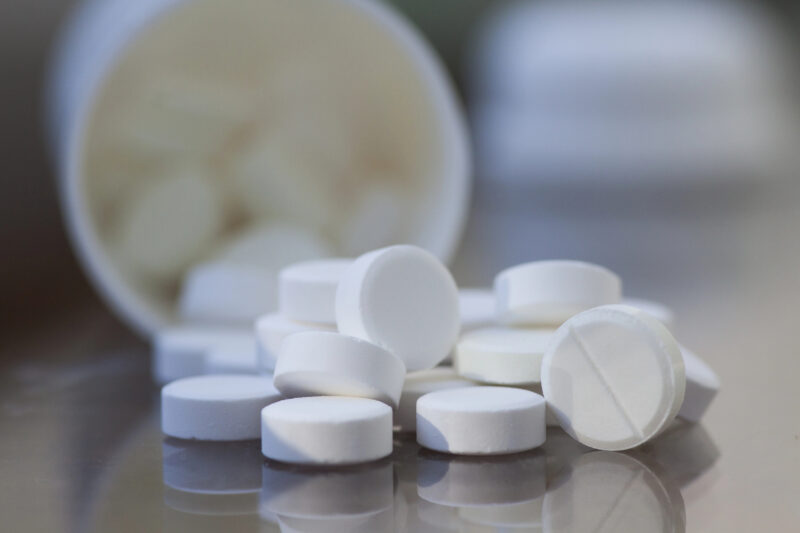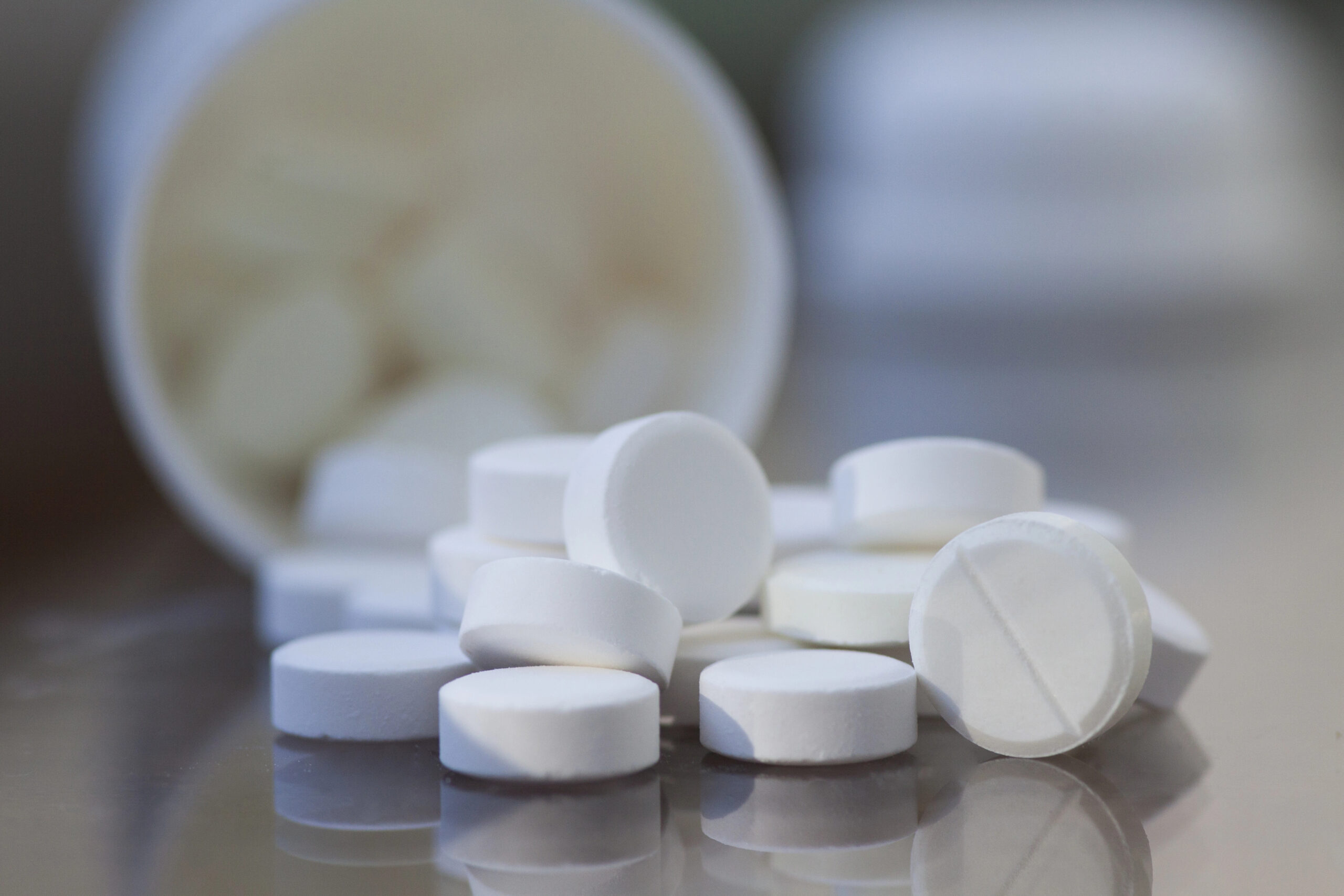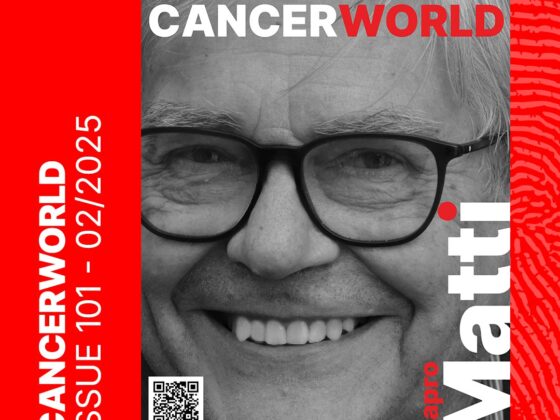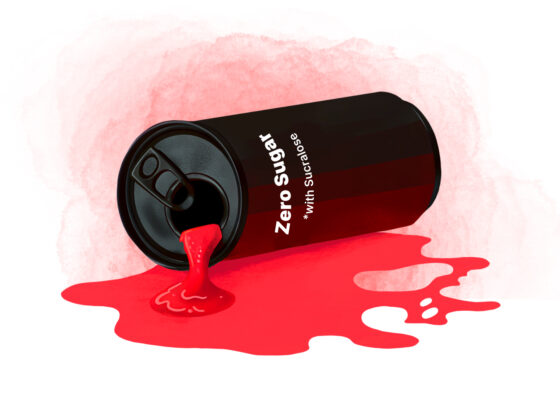Taking adjuvant low-dose aspirin daily for three years reduced recurrence of colorectal cancer by 55% in patients with somatic alterations in PI3K signalling compared to those taking placebo. The results of the ALASCCA study, presented at the 2025 ASCO Gastrointestinal Cancers Symposium in San Francisco, 23 to 25 January, could lead to immediate changes in clinical practice for around one third of patients with colorectal cancer (CRC).
“The results of the ALASCCA study are clear and provide the final piece of the puzzle regarding the value of aspirin for patients with colorectal cancer, demonstrating that the effect is seen in patients with PI3K mutations. Together with the pre-existing evidence from large observational studies, retrospective genome analyses, and randomised studies involving high-risk patients with hereditary syndromes, as well as the negative ASCOLT study, published in The Lancet in January 2025 (which did not use a biomarker), I believe that the evidence is sufficient to change clinical guidelines,” Anna Martling, the lead author, tells Cancerworld. “Notably, this is the first trial to show that somatic alterations in the PI3K signalling pathway, also beyond the PIK3CA mutation, predict aspirin response, expanding the targetable patient population substantially.” The study, Martling adds, represents the first biomarker-driven randomised trial of adjuvant aspirin in colorectal cancer that has been completed.
Among patients with stage II–III colorectal cancer, 20 to 40% develop metastatic disease. Numerous observational and randomised controlled studies have suggested a protective effect of regular aspirin use on CRC development. Furthermore, favourable outcomes have been associated with aspirin use following CRC diagnosis, suggesting that aspirin might offer a promising agent for adjuvant therapy. One theory has been that aspirin suppresses cancer-cell growth and induces apoptosis through blockade of the PI3K signalling pathway. A study of patients with CRC taking aspirin, published in the New England Journal of Medicine in 2012, found that patients with mutated PIK3CA genes experienced superior survival to those with wild-type PIK3CA genes. “These findings, though promising, required validation through a prospective trial,” says Martling, from the Karolinska Institute, Stockholm.
For the Adjuvant Low-Dose ASa in Colorectal CAncer (ALASCCA) trial (NCT02647099), patients with stage I–III rectal cancer or stage II–III colon cancer who exhibited somatic alterations in the PI3K signalling pathway were randomised to receive either 160mg aspirin daily or placebo, with treatment initiated within three months of surgery and continued for three years. For the investigator-initiated study, a total of 3,508 patients from 33 hospitals in the Nordic region were screened for somatic alterations in the PI3K pathway. Of 2,980 patients with a conclusive genomic analysis, 1,130 patients (37%) had an alteration in the PI3K pathway that made them eligible for the trial. Overall, 626 patients (419 with colon cancer and 207 with rectal cancer) were randomised. These patients were then divided into two groups – group A (patients with a PIK3CA mutation in exon 9 and/or 20) and group B (patients with other PI3K mutations, including PIK3CA mutations outside exon 9/20 or mutations in PIK3R1 or PTEN genes). Patients in groups A and B were randomly assigned to receive 160mg of daily aspirin or placebo for three years.
Addressing the rationale behind exploring groups A and B separately, Martling explained in an interview with the Video Journal of Oncology, “It might be that, not only the PIK3CA mutation is of interest, but also the mutations outside that specific region but in the same signal kinase pathway. And that has never been explored before.”
Results at three years showed that patients in group A (those with a PIK3CA mutation in exon 9 and/or 20) who took aspirin had a rate of recurrence of 7.7% (95%CI 4.2%–12.5%) versus 14.1% (95%CI 9.2%–20.0%) for those taking placebo (HR=0.49, 95%CI 0.24–0.98; P=0.044).
Patients in group B (those with other PI3K mutations, including PIK3CA mutations outside exon 9/20 or mutations in PIK3R1 or PTEN genes) who took aspirin had a rate of recurrence of 7.7% (95%CI 4.2%–12.6%) versus 16.8% (95% CI 11.4%–23.1%) for those taking placebo (HR=0.42, 95%CI 0.21-0.83; P=0.013).
For groups A and B combined, patients taking aspirin were 55% less likely to experience recurrence than those taking placebo.
Regarding disease free survival, in comparison to placebo, patients taking aspirin in group A had a 39% improvement (HR=0.61, 95%CI 0.34–1.08; P=0.091); while those taking aspirin in group B had a 49% improvement (HR=0.51, 95%CI 0.29–0.88; P=0.017).
Three patients experienced aspirin-related severe adverse events (one gastrointestinal bleeding, one haematoma, and one allergic reaction).
“What is interesting is that, in the exploratory arm with mutations in the same signal pathway but outside the PIK3CA mutation, we saw a stronger effect. A 58% reduction in recurrence, meaning that we can expand the population for this treatment,” says Martling.
Although the trial was not powered for subgroup analyses, the advantage of aspirin compared to placebo could be observed in all subgroups. “So, no matter which mutation you had, whether you had a colon or rectal cancer, or if it was stage II or III disease, or if you had neoadjuvant or adjuvant treatment, they all had an effect,” said Martling. Notably, she added, there was a stronger effect in females than males which will require further scientific evaluation. “A potential explanation, also observed in trials from the cardiovascular field, is that men might require a higher dose than women. We will investigate this intriguing finding in future studies,” says Martling.












